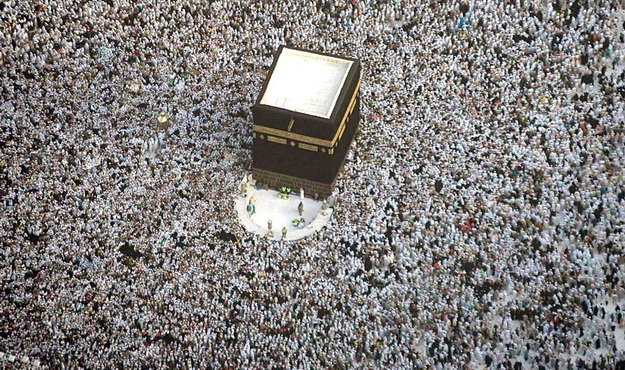Every human being is a unique creation containing some angelic, devilish and even animal-like characteristics. His angelic qualities are predominant when he sincerely worships God and establishes a close relationship with Him. Such a man is like the angels, who are depicted in the Quran as follows, “who do not disobey God in whatever He has commanded them, but (always) do what they are commanded to do.” [At-Tahrim 66:6]
But if a human being turns his back on or shows contempt for his Creator, or worships more than one God. He will fall victim to negative and harmful influences. When such a man gets angry he acts like a wild man, his sole aim being to beat his enemy at all costs, even if this means attacking him physically. These two tendencies form the basis of human nature, one inclining towards good and one towards evil. God, however, has endowed man with the power of reasoning and the will to choose which way is best. If he is able to use his will and exercise good sense he will be amongst those who enjoy eternal happiness in the life and in the hereafter. If not, he will bear the consequences and suffer endless tornment.
It is true that the self by its very nature is inclined towards freedom. However, religion restricts this ‘freedom’ in order to discipline the self. Without such restriction, we could lose all good values and the self might lose control and act in a completely irresponsible way. With such unrestrained freedom, human society could run amok, with human beings behaving like lunatics. For example, a mad man does whatever comes into his mind; a lunatic is the only person who enjoys total freedom. A sane person, however, is governed by his common sense.
The self is constantly being tempted since what is alluring is always attractive. For example, you may enjoy listening to and taking part in gossip, hearing about what people have or have not done, and you may derive a vicarious pleasure in it, because you feel that you are better than the person whose weaknesses are being exposed. In the same way, theft may be considered as fun, as it is an easy and effortless way of bringing in money. The self may find committing adultery an enjoyable way of satisfying its desires. Cheating in an examination helps the person to pass it, without having made an effort. The self may want to shirk its duties, thus becoming lazy and lethargic. But if you really stop and think, you will find that this short-lived freedom is not worth the trouble, because in return you will have to bear the consequences of your misdeeds for a long time.
There can hardly be anyone in the world who has not sinned at some point in their life, and enjoyed committing that sin. The least of all sins might be the reluctance to get up and perform the dawn prayer. If we stop and think about all the pleasures we might have enjoyed ten years ago and then ask whether we are left with any of those pleasures now, what’s the answer? Nothing! To perform any duty is always hard and causes some discomfort. For example, fasting during the month of Ramadan means we Muslims have to suffer feelings of hunger and thirst. But what effects are we feeling now from those sufferings? What is left of the hunger pangs we underwent during the month of Ramadan ten years ago? The pleasures of sin may have vanished, but the punishment remains. Whereas the pains and sufferings undergone for the sake of performing duties have disappeared, the reward stays with us.
What consequences await us at the hour of death from all the pleasures we enjoyed and the sufferings we underwent?
We all forget death. Even seeing funerals go by is not enough to remind us that we will die one day. Even during prayers at funerals our minds may wander onto worldly matters. We think that everyone else is going to die except us, and yet, deep down, we know we shall depart from this world one day.
A man may live up to sixty, seventy or even a hundred, but he is bound to die one day. You must know people who lived to a great age, but they all passed away. Perhaps you know that Prophet Noah (peace be upon him) lived till he was 950, preaching to his people. Where is Noah now? Has he been living in the world all this time? Has he been excluded from death? Why is it, then, that we do not think about death and get ready for it, since it is inevitable?
This does not mean that Islam calls upon every Muslim to give up this world completely and free himself of all responsibilities. Islam does not say that mosques provide the only place of interest for Muslims; nor does it say that they should live in caves and lead the life of hermits.
On the contrary, Islam calls upon Muslims to set the best example of a civilized people and to strive to be among the richest in terms of material wealth as well as to take a lead among scientists. It urges every Muslim to lead a balanced and healthy taking care of his or her body by eating proper food and keeping fit. Islam advises Muslims not to overwork and to enjoy life and relax, so long as this recreation does not trek the boundaries of Islam. It urges a Muslim to take care of his family and carry out certain duties in the society in which he lives. He should be just as aware of these obligations as of the principles of faith in the Oneness of God and the need to obey Him. [Shaikh Ali at-Tantawi, “General Introduction to Islam”.]
 navedz.com a muslim's Quest for the truth
navedz.com a muslim's Quest for the truth









